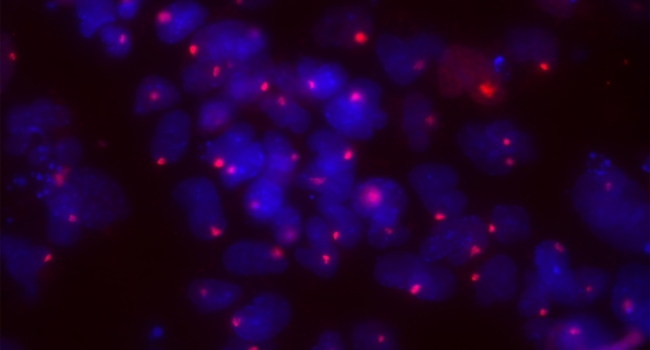
Exploring Advances in Rett Syndrome Treatments
Rett Syndrome (RTT) is a neurological disorder that predominantly affects females, resulting in severe impairments in motor skills and cognitive development. Rett Syndrome also involves respiratory irregularities such as hyperventilation and breath-holding, as well as seizures and irregular heartbeat, which can be life-threatening. Additionally, individuals may experience severe gastrointestinal issues, including constipation and gastroesophageal reflux. As we explore the landscape of existing treatments and look toward future innovations, it’s essential to focus on a multi-faceted approach to therapy that includes genetic, pharmacological, and supportive strategies. Although genetics and supportive strategies have been described in detail elsewhere, this blog will specifically focus on pharmacological treatments.
Currently, the treatment of Rett Syndrome involves managing symptoms to improve quality of life. The FDA has approved drugs that target specific symptoms of RTT, such as seizures, which are common in patients. Anticonvulsants like lamotrigine and valproate are frequently prescribed to control these episodes. Additionally, medications that aid with breathing irregularities and muscle stiffness can also be pivotal in daily management.
Trofinetide, marketed under the brand name Daybue, represents an advancement in the treatment of Rett Syndrome. It was approved by the U.S. Food and Drug Administration (FDA) on March 10, 2023, for use in both adult and pediatric patients aged two years and older. This approval marks it as the first and only treatment specifically indicated for Rett Syndrome, highlighting a major yet not curative step forward in therapeutic options for this debilitating neurological disorder. Daybue is a synthetic analog of the amino-terminal tripeptide of the insulin-like growth factor 1 (IGF-1), designed to potentially reduce neuroinflammation and support synaptic function. The approval was based on evidence from clinical trials that demonstrated its efficacy in improving clinical symptoms of Rett Syndrome, including neurobehavioral function in affected individuals. The drug is administered as an oral solution and is prescribed to be taken twice daily. This treatment regimen was shown to improve communication abilities and decrease anxiety and mood dysregulation among patients with Rett Syndrome, offering a new hope for patients and their families. The FDA granted Trofinetide priority review status, fast track designation, and orphan drug designation, which expedited the review process due to the critical need for effective treatments for this rare and severe condition. This approval has been greeted with optimism by the medical community and advocacy groups, as it provides a first targeted therapy to manage Rett symptoms.
Small molecule screen to cure Rett syndrome
The urgent need for therapeutic options that more effectively address the neurological symptoms of Rett Syndrome has catalyzed a dynamic and highly promising area of research, focusing on the potential of small molecule screens. This innovative approach is not just a line of investigation but a beacon of hope for drastically enhancing brain function and communication pathways, thereby profoundly mitigating the cognitive impairment typical of RTT. The cornerstone of this strategy lies in the ability to reactivate the silent MECP2 gene from the inactive X chromosome in females. This gene, critical to neural function, when muted, leads to the manifestation of Rett Syndrome. By identifying and deploying compounds that can modulate epigenetic mechanisms, researchers are on the cusp of potentially reactivating the expression of this pivotal gene. The implications of such a breakthrough are profound, offering not just improvements but possible reversals of the debilitating symptoms associated with RTT. Recent advancements in the field have illuminated the vast potential of this approach. Our company has already identified several molecules capable of partially reactivating MECP2. This not only underscores the viability of this approach but also positions it as a front-runner in the quest for an effective treatment. By continuing to screen libraries of small molecules, there is the tantalizing prospect of discovering candidates that can precisely target and alter the epigenetic state of specific genes on the inactive X chromosome. Such precision in targeting opens the door to not just managing but potentially curing Rett Syndrome. This approach is emblematic of a new era in therapeutic strategy, where the confluence of epigenetic insight and molecular innovation holds the promise to transform the lives of those affected by RTT and many other X-linked disorders. The promise shown by these early successes in small molecule screens provides a compelling case for increased investment and focus on this line of research, potentially leading to groundbreaking therapies that could restore normal gene function and radically enhance the quality of life for patients with Rett Syndrome. As these efforts progress into further clinical research and hopefully soon into clinical trials, the anticipation within the medical community and among families affected by Rett Syndrome continues to grow, heralding a future where effective treatment is not just a possibility but a reality.
Enhancing Quality of Life: Collaborative Research and Supporting Families and Caregivers
Beyond medications, supportive care is critical in managing Rett Syndrome. Tailored therapies such as physical therapy, occupational therapy, and speech therapy are crucial for maintaining mobility and improving communication skills. Advances in assistive technology—such as communication devices adapted for motor impairments—are also helping to break down barriers, enabling patients to interact more fully with their world.
The global scientific community continues to collaborate on Rett Syndrome, with research networks sharing data and resources to expedite the development of effective treatments. By integrating findings from across different populations and disciplines, researchers can better understand the variability of RTT and refine their approaches accordingly. The role of caregivers in managing Rett Syndrome cannot be overstated, and providing robust support systems for these individuals is vital. Educational resources, community support networks, and access to psychological counseling can alleviate some of the burdens faced by families, empowering them to provide the best care for their loved ones.




